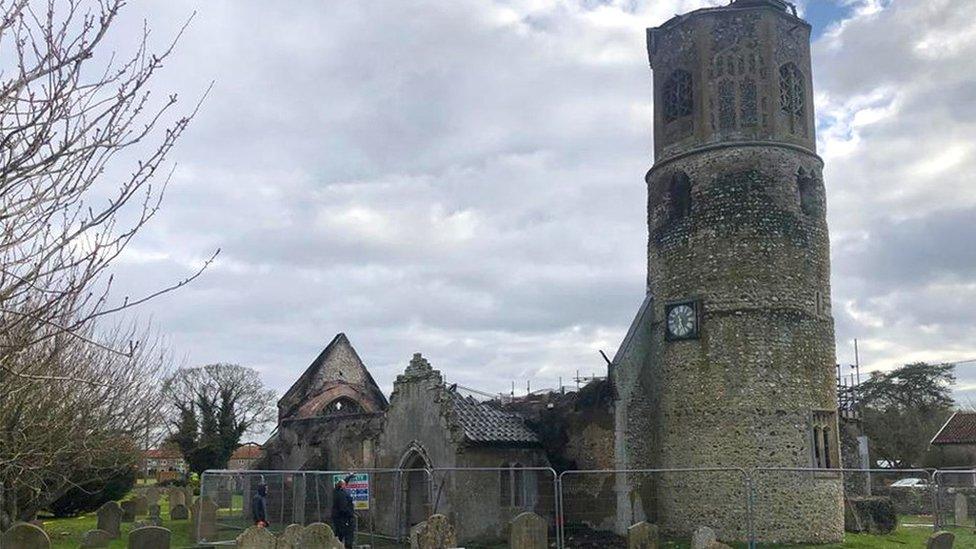Why is fire-hit St Mary's Church in Beachamwell being rethatched?
- Published
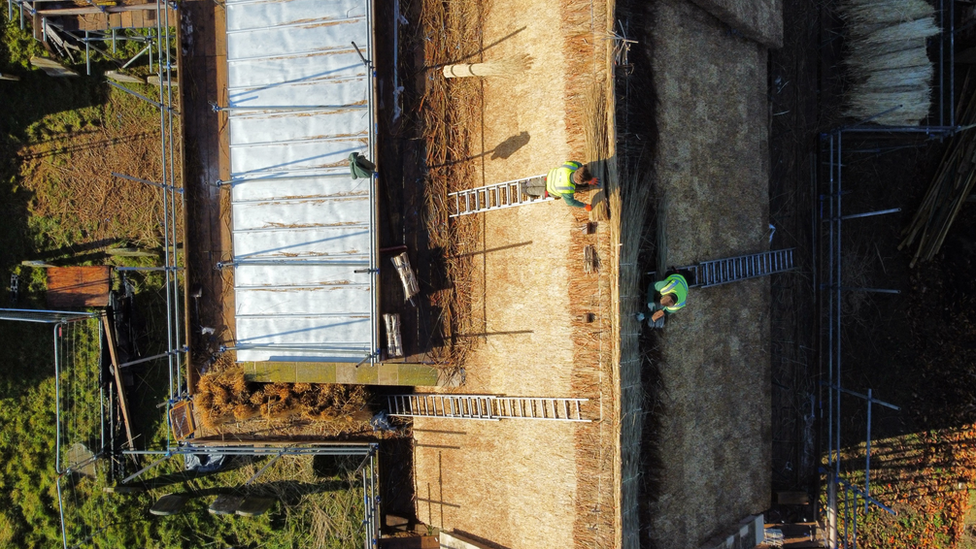
A spark from welding repairs set the thatched roof of St Mary's Church in Beachamwell alight
In February 2022, a spark from welding repairs landed on the thatched roof of a 1,000-year-old Norfolk church. The resulting fire completely gutted the building. Workers are now painstakingly rethatching it, but why?
St Mary's Church in Beachamwell is far from unusual in dating back to the early 11th Century.
What does make it unusual is that its thatch remained intact until it was engulfed in flames last year.
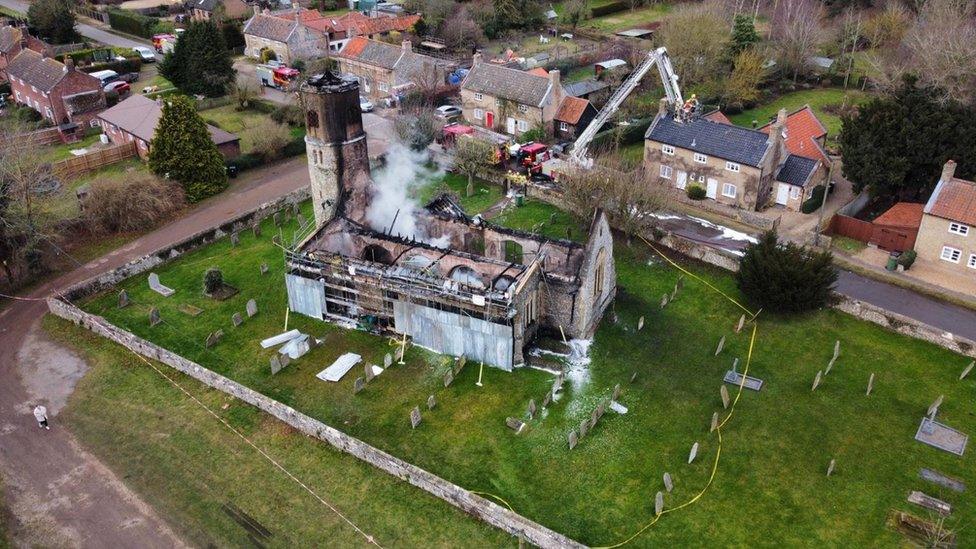
The fire-ravaged medieval church is having a new roof installed
Similarly-aged churches usually lost their thatchings in conflagrations centuries ago. Rather than rethatching them, their roofs were replaced with slate.
Not so at St Mary's, just outside Swaffham.
Peter Berendt, church warden, said the reason for rethatching the popular church was three-fold.
"Because this is Grade I-listed and because it has not suffered a fire of this nature prior to the listing system," he said, "it has to be replaced with thatch.
"And of course, the villagers love it - they've got their thatched church and it is 1,000 years old."
Thirdly, the team involved in replacing the roof has taken steps to prevent a fire in future, using modern building techniques.
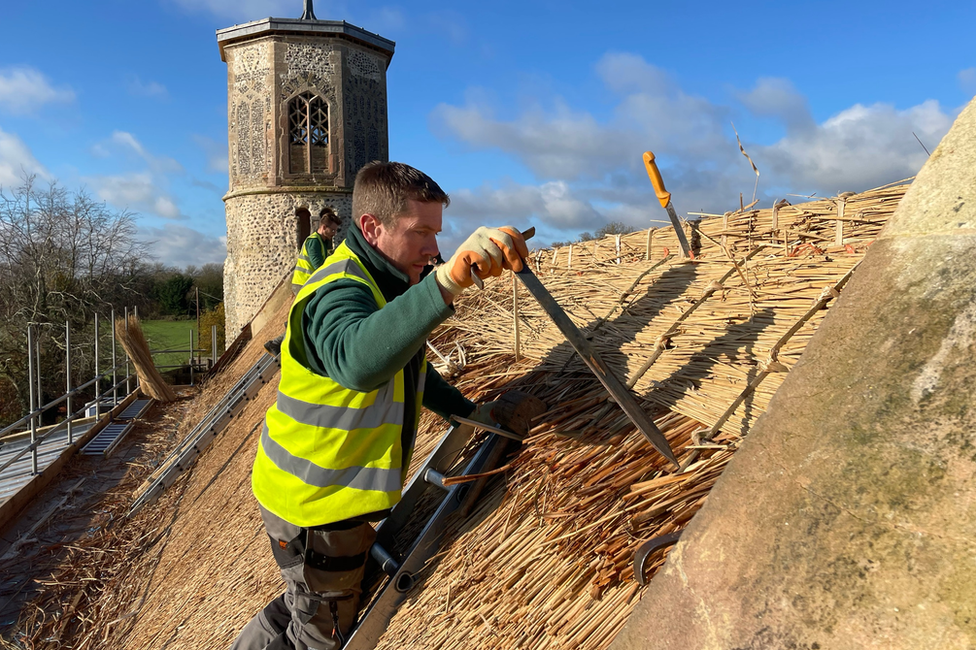
A membrane that can stop fire spreading has been put beneath the thatch
A fire resistant membrane has been put beneath the thatch, which prevents and delays the spread of flames from below spreading up.
"And the metal roof has been replaced," Mr Berendt said, "so there are no hot metal works to be done up there, as was the case when the thatched roof caught fire.
"Acts of God such as lightning aside, we hope there won't be any chance of a fire burning through in the future with the measures we've taken."
Thankfully, the church was fully insured at the time of the blaze.
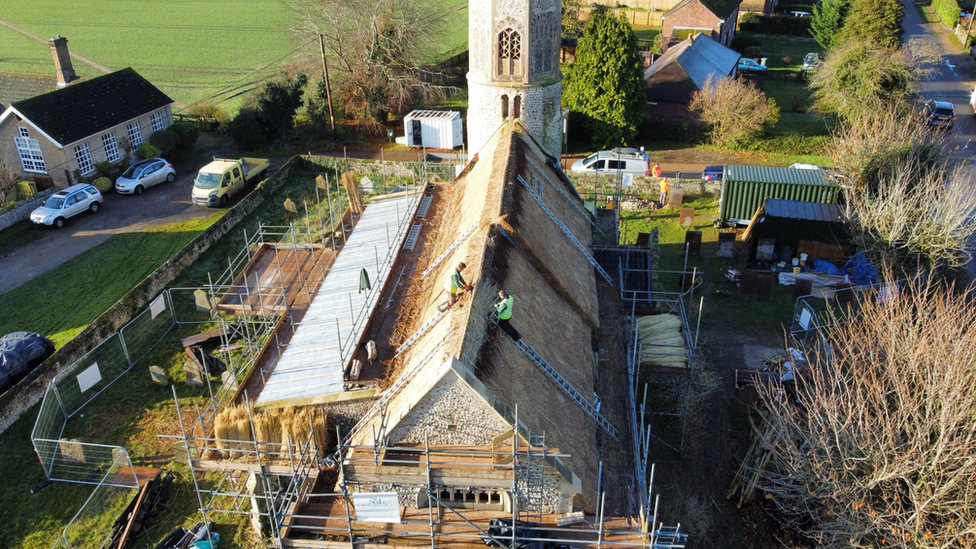
Workers are meticulously putting the roof back to its former glory
The works are being carried out by Anglian Thatching, owned by third generation thatcher Jamie Lloyd.
He said most of the work his company did was domestic thatching.
But he was keen to get involved with the works at St Mary's, because his grandfather worked on church's roof back in the 1980s.
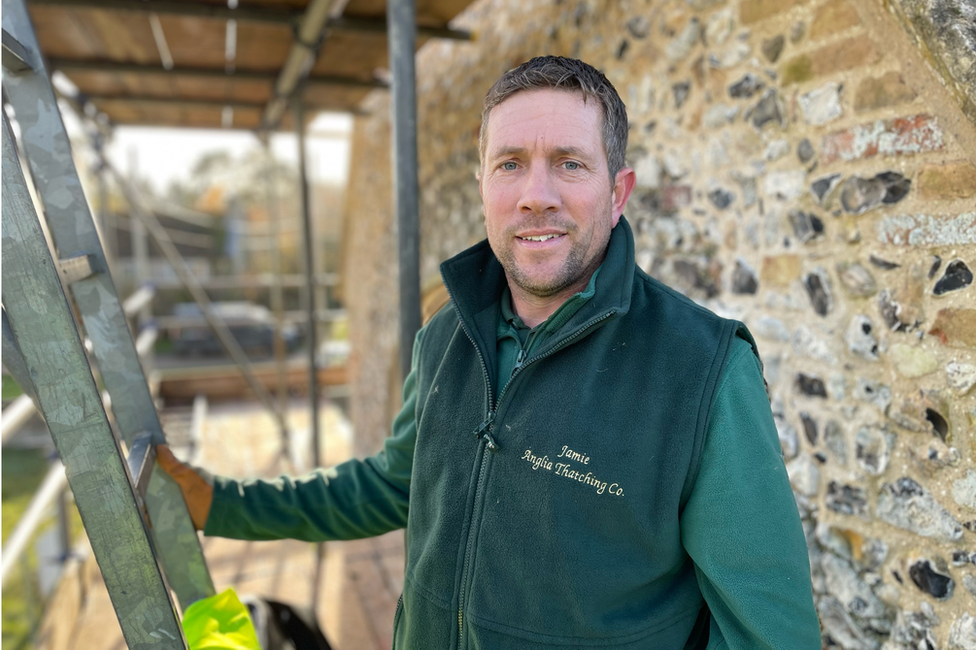
Jamie Lloyd was keen to get involved with the works at St Mary's because his grandfather also worked on the church
"The methods have not changed that much to be honest," Mr Lloyd said.
"The fixings have changed on the reed work - we use stainless steel screw fixings and steel rod, whereas they originally used bramble and tar cord and metal hooks and rods."
For those who love the church, seeing it being returned to its former glory was "marvellous", according to Mr Berendt.
"There is nothing quite like seeing the roof back on the church," he said.
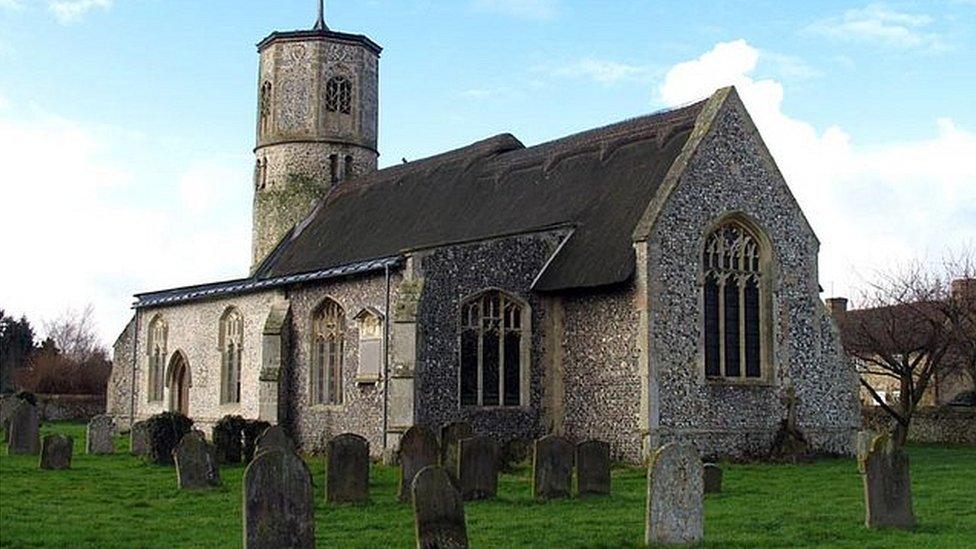
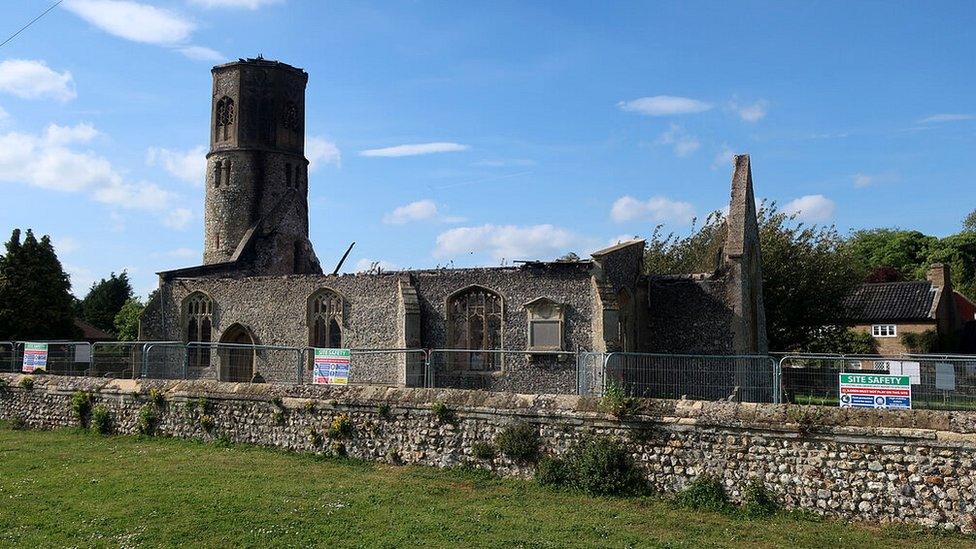
The entire building was gutted by the blaze
"Before you had this hollowed out empty shell and now it has its cover back. It is like a tortoise returning.
"It is lovely seeing the colour coming back to it. Before the fire it was a very dull grey and dark thatch because it was so old.
"Now it is brand new and it looks absolutely gorgeous."

Follow East of England news on Facebook, external, Instagram, external and X, external. Got a story? Email eastofenglandnews@bbc.co.uk, external or WhatsApp 0800 169 1830
Related topics
- Published17 October 2023
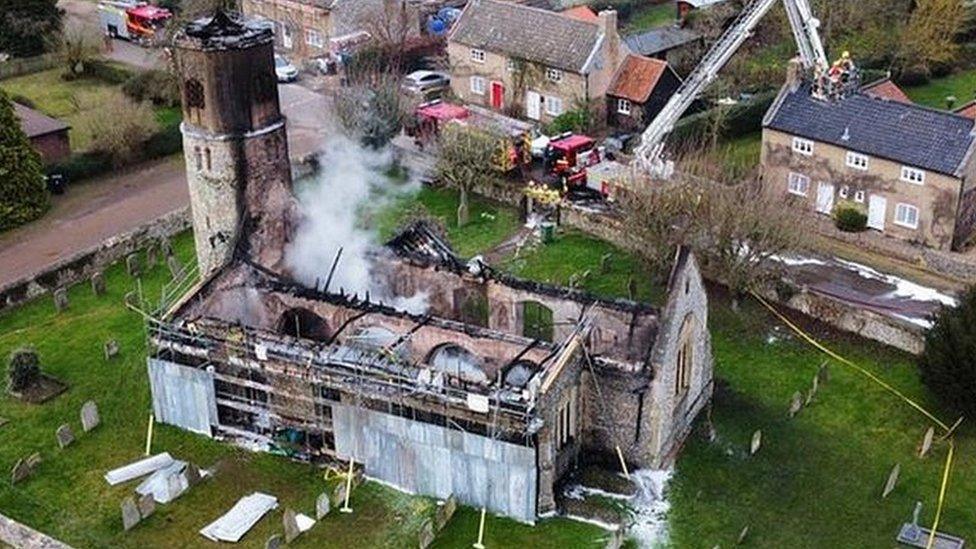
- Published11 February 2022
